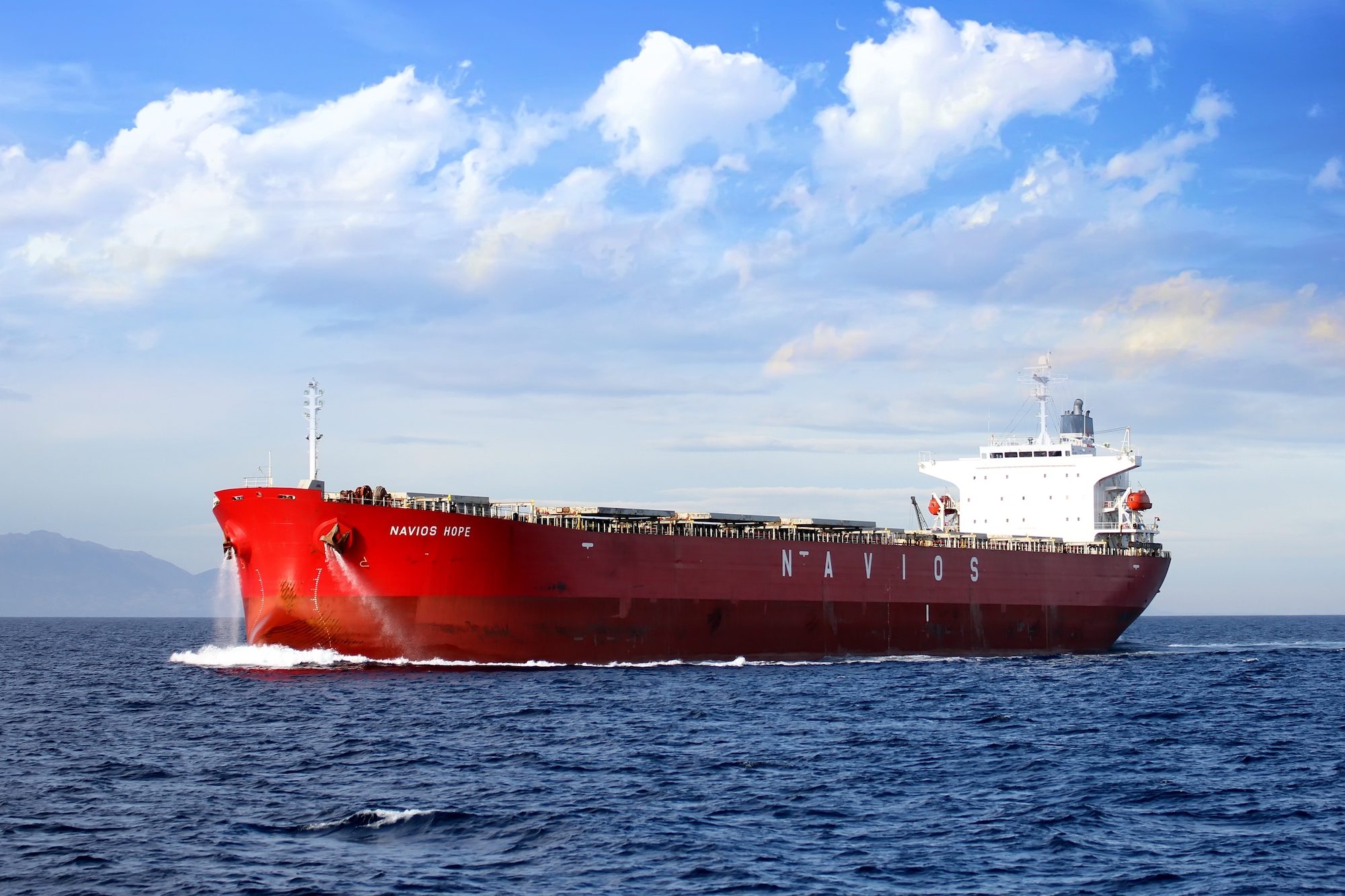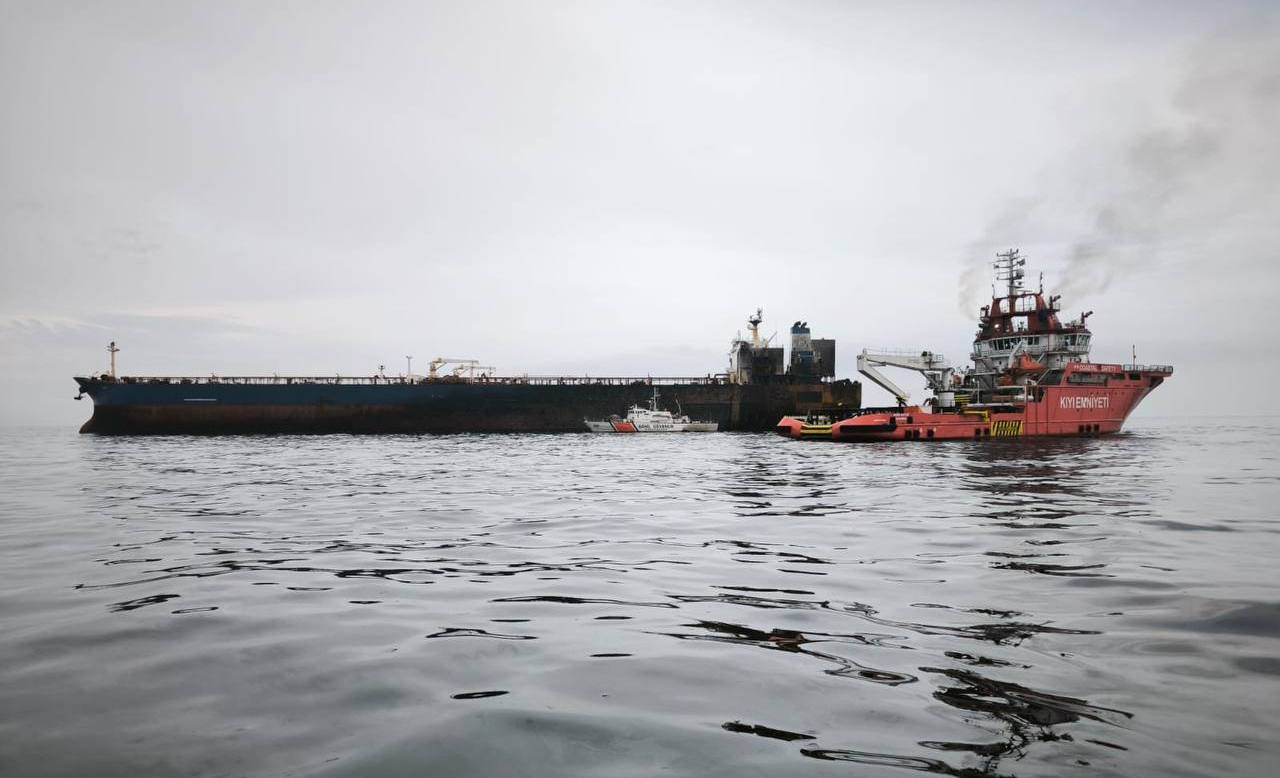Navios Maritime Holdings (NYSE: $NM) announced today a definitive agreement to sell its 36-vessel drybulk fleet to sister company Navios Maritime Partners (NYSE: $NMM) for an aggregate consideration of approximately $835 million.
The sale price includes $441.6 million of bank liabilities, bareboat obligations and finance leasing obligations from Navios Holdings and is subject to debt and working capital adjustments.
The 36-vessel drybulk fleet consists of 26 owned and 10 chartered-in ships (all with purchase options) with a total capacity of 3.9 million dwt and an average age of 9.6 years.
The acquisition will increase Navios Partners’ drybulk fleet by 67% and its overall fleet by 24%, to 188 ships. As a result, NMM will have the third largest drybulk fleet and the second largest fleet of all US publicly-traded companies, based on number of vessels.
Navios Partners said the addition of the “young, known, en-bloc fleet” comes at an “opportuned time” in the drybulk market, adding scale and rebalancing the company’s segement exposure. Following the completion of the transaction, Navios Partners will own and operate a fleet of 90 drybulk vessels, 49 containerships and 49 tankers, including 22 newbuilding vessels to be delivered through the first quarter of 2025.
Based on certain assumptions, the acquired vessels are expected to generate approximately $164.0 million of estimated EBITDA for Navios Partners and $81.5 million of estimated free cash in 2023.
NMM will release Q2 earnings tomorrow before market open.
Update: NMM on Thursday announced a massive $100 million share buyback program representing approximately 17% of the company’s public float.
Both Navios Holdings and Navios Partners fall under the shipping empire of Greek-born Angeliki Frangou, who serves as Chairwoman and Chief Executive Officer of both companies. Over the past year and half, she has overseen Navios Partners’ acquisition of both Navios Maritime Containers (ex-NMCI) and Navios Maritime Acquisition Company (ex-NNA), creating one of the largest and most diversified U.S.-listed shipping companies.
The closing of this latest transaction, which is still subject to customary closing conditions, will take place in in two tranches, the first involving the transfer of 15 vessels that will be completed on or about July 29, 2022. The second closing will the remaining 21 vessels and will be completed in the third quarter of 2022.
For Navios Holdings, the transaction is expected to reduce liabilities by approximately $784.2 million and result in the company’s exit from direct fleet ownership. Going forward, Navios Holdings plans to focus on growing its Navios South American Logistics business, of which it owns a 63.8% controlling equity stake. Navios Logistics is one of the largest infrastructure and logistics companies in the Hidrovia region of South America.
Navios Holdings also continues to hold a 10.3% interest in Navios Partners.
Angeliki Frangou made the following comments in Thursday’s earnings release:
“We are pleased to report our results for the second quarter of 2022 in which we recorded $280.7 million of revenue and $118.2 million of net income. Net income amounts to $3.84 per common unit for the quarter and $6.62 for the first six months of 2022.
“We are also pleased with the transaction we announced last night involving the acquisition of a 36-vessel drybulk fleet for $835.0 million. Navios Partners is the second largest US-listed maritime company and the third largest US-listed drybulk company, by number of vessels.
“Our board authorized a unit repurchase program for up to $100.0 million. At current prices, this program would cover approximately 17% of the public float. The timing of the repurchases and the exact number of units to be repurchased shall be determined by the Company based on market conditions and financial and other considerations, including working capital and planned or anticipated growth opportunities. Total return to investors, we believe, is the way to measure our success, and will use this tool as a means of achieving this result for our unitholders.”

 Join The Club
Join The Club











